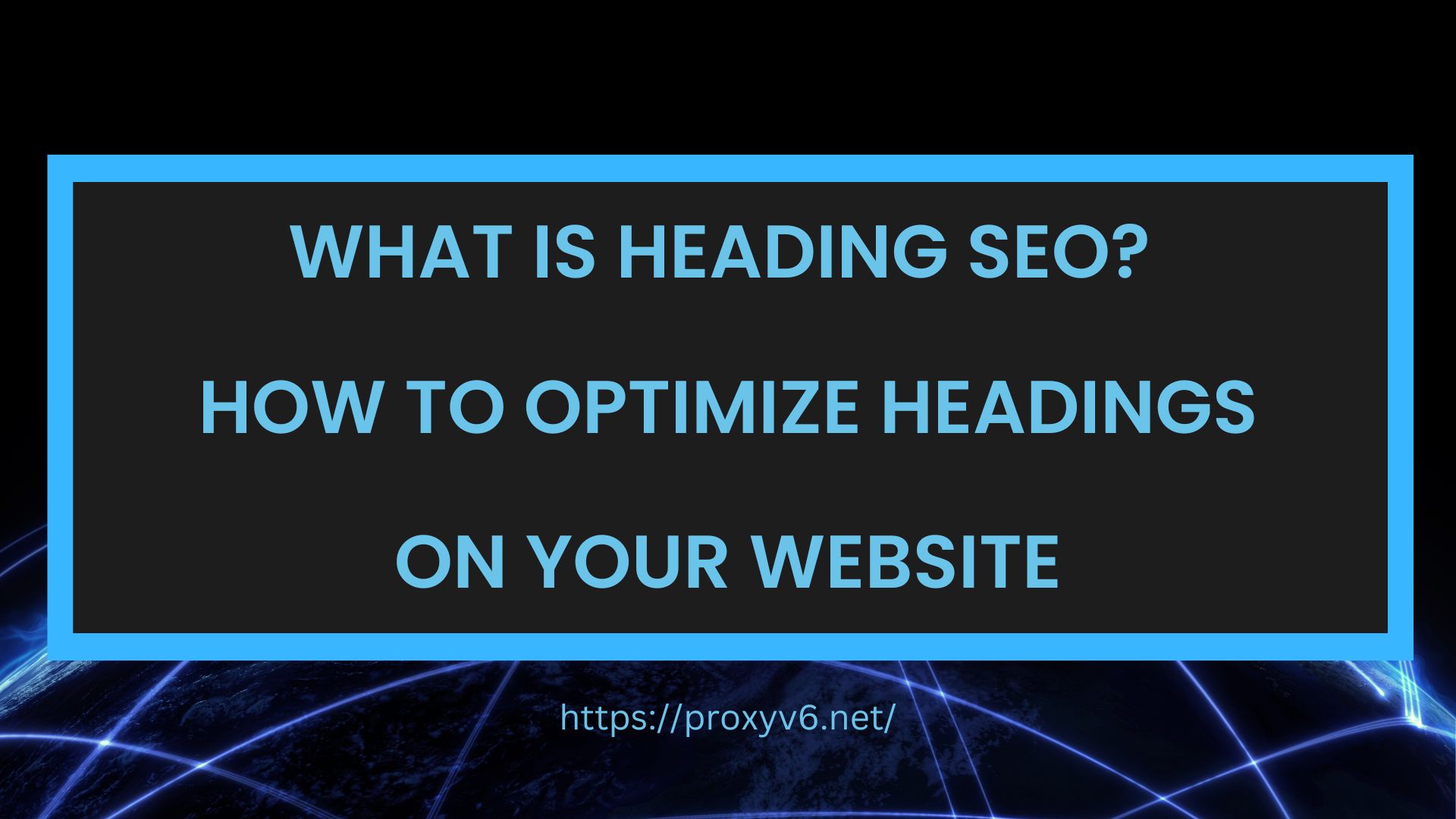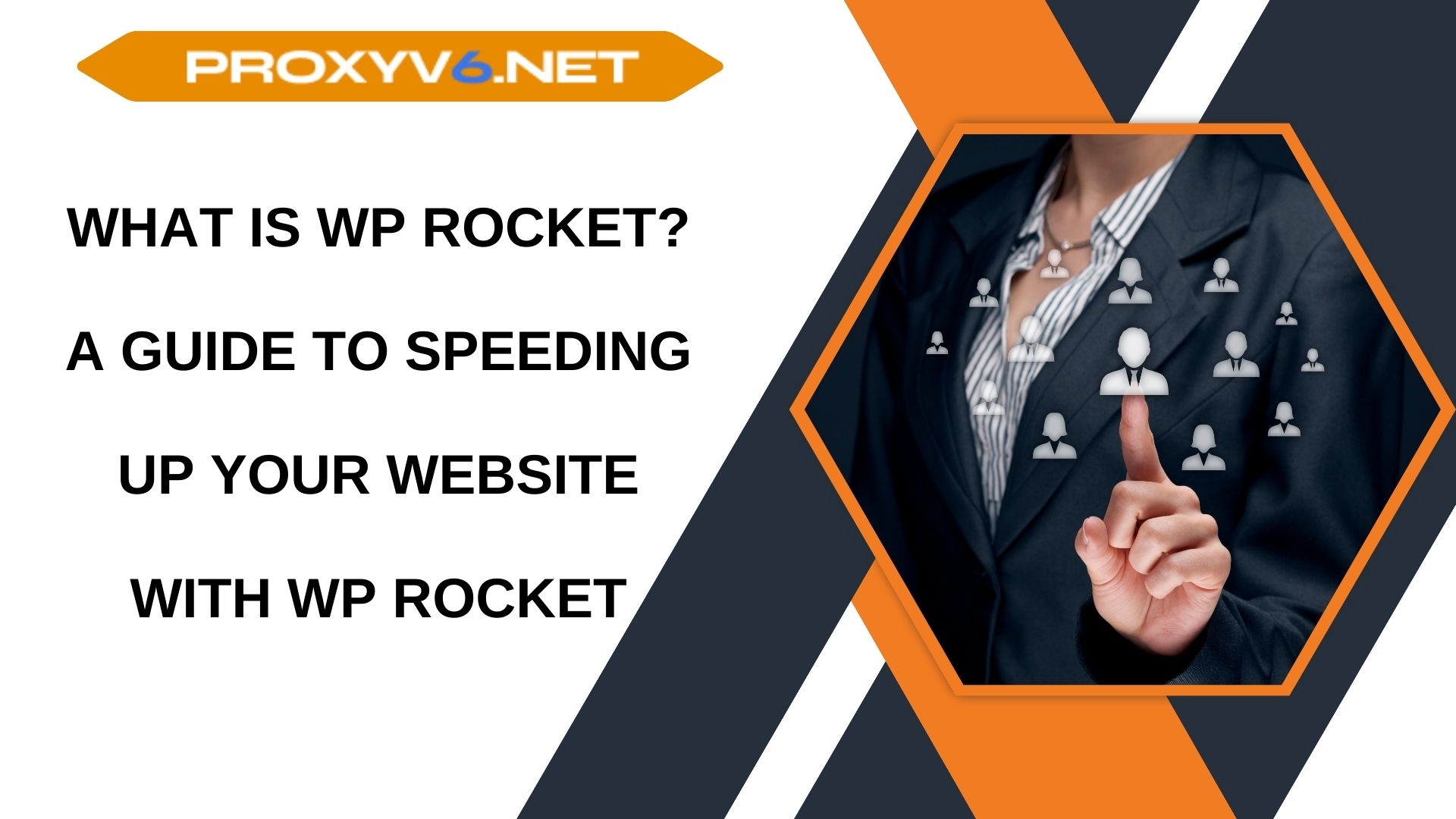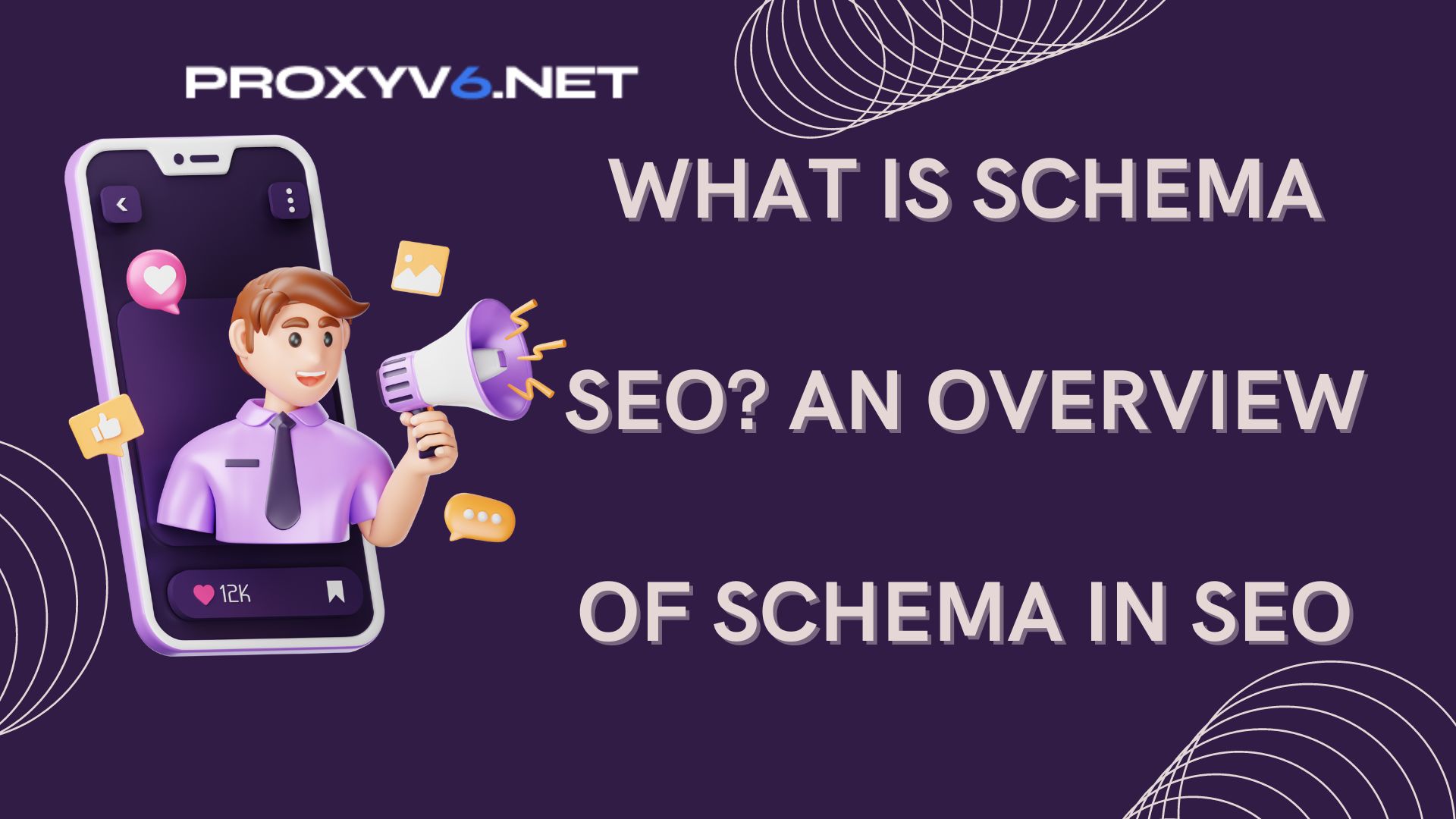SEO On Page and Off Page are two crucial aspects of Search Engine Optimization (SEO). To understand what SEO On Page and Off Page are, this article by ProxyV6 will provide an overview and clearly distinguish between these two methods. Let’s explore the differences and how to effectively apply them in SEO!
Overview of SEO On Page and Off Page
What is SEO?
SEO (Search Engine Optimization) is the process of optimizing a website to improve its ranking on search engines. To make it appear higher in the search results of search engines like Google. Imagine SEO as organizing your store so that when customers enter, they can easily find what they need and have a good impression of the store.
Understanding what SEO On Page and Off Page are allows us to fully optimize the website. SEO encompasses various elements and strategies to enhance the visibility of the website in natural search results. This article will help you understand what SEO On Page and Off Page are, so you can apply the right methods to achieve optimal results.

SEO On Page
SEO On Page is the process of optimizing individual elements on a website to improve its ranking on search engines. Elements of SEO On Page include optimizing titles, meta tags, content, and URL structure. Understanding what SEO On Page and Off Page are will help you apply SEO strategies effectively. All these elements are under your control, making it easier to improve user experience and increase visibility in search results.
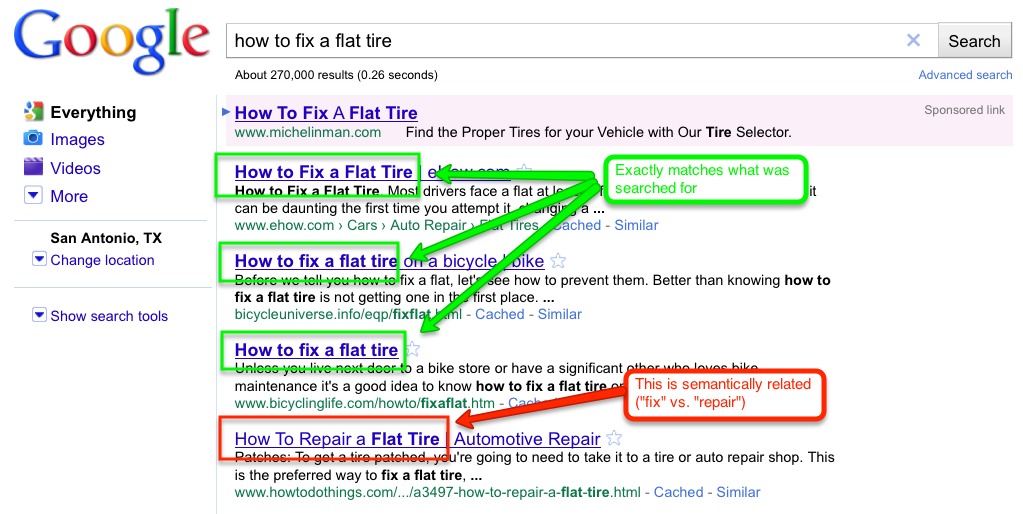
How to Properly Optimize SEO On Page for Your Website
To properly optimize SEO On Page for your website, pay attention to the following factors:
- Page Title (Title): Ensure the page title is attractive, contains the main keyword, and is of appropriate length (about 50-60 characters).
- Meta Description: Write a meta description that is engaging and contains the main keyword, with a length of about 150-160 characters.
- Friendly URL: Create a short, keyword-rich, and easy-to-read URL.
- Quality Content: Ensure the content is useful, relevant to the keyword, and of appropriate length.
- Header Tags: Use H1, H2, H3, etc., to structure the content clearly, helping readers and search engines understand the content.
- Image Optimization: Use high-quality images, name files and alt tags with keywords.
- Internal Links: Create links between pages within the website to improve user experience and help search engines index.
Tools to Check SEO On Page
Here are some popular tools to help you check and optimize SEO On Page for your website:
- Google Search Console: Helps you monitor site performance, detect errors, and improve SEO.
- Yoast SEO (for WordPress): This plugin supports SEO On Page optimization with features like keyword analysis, readability checks, and title and meta tag optimization.
- Screaming Frog SEO Spider: This tool scans your entire website to find SEO On Page issues like 404 errors, duplicate meta tags, and missing alt tags.
- Ahrefs: Provides detailed reports on SEO performance, keyword analysis, and backlink checks.
- Moz Pro: This suite of tools helps analyze and optimize SEO On Page, check keyword rankings, and track website performance.
By using these tools, you can easily detect and fix SEO On Page issues, thereby improving rankings and increasing traffic to your website.
SEO Off Page
SEO Off Page is a set of strategies aimed at improving the reputation and authority of a website through activities outside the site. SEO Off Page activities include building links (backlinks), social media marketing, and content marketing. To understand more deeply what SEO On Page and Off Page are, we need to know that SEO Off Page focuses on building relationships and enhancing online presence. These strategies help increase the website’s credibility and improve search rankings.
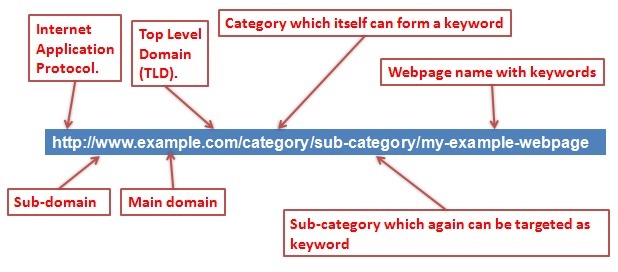
How to Properly Optimize SEO Off Page for Your Website
- Build Quality Links (Backlinks): Create links from reputable sites related to your content. These links will help increase the authority of your website in the eyes of search engines.
- Social Media Marketing: Leverage social media platforms like Facebook, Twitter, and LinkedIn to share content and attract user attention. Social media helps create indirect links and increase website traffic.
- Content Marketing: Create and share quality content on blogs, forums, and other websites to attract readers and create natural links. High-quality content attracts interest and helps build website credibility.
- Online Communities: Participate and contribute to forums, discussion groups, and online communities related to your field. This not only helps build relationships but also creates valuable links.
- Personal Branding: Build personal branding by sharing expertise and participating in online events and seminars. A strong personal brand attracts interest and respect from the community.
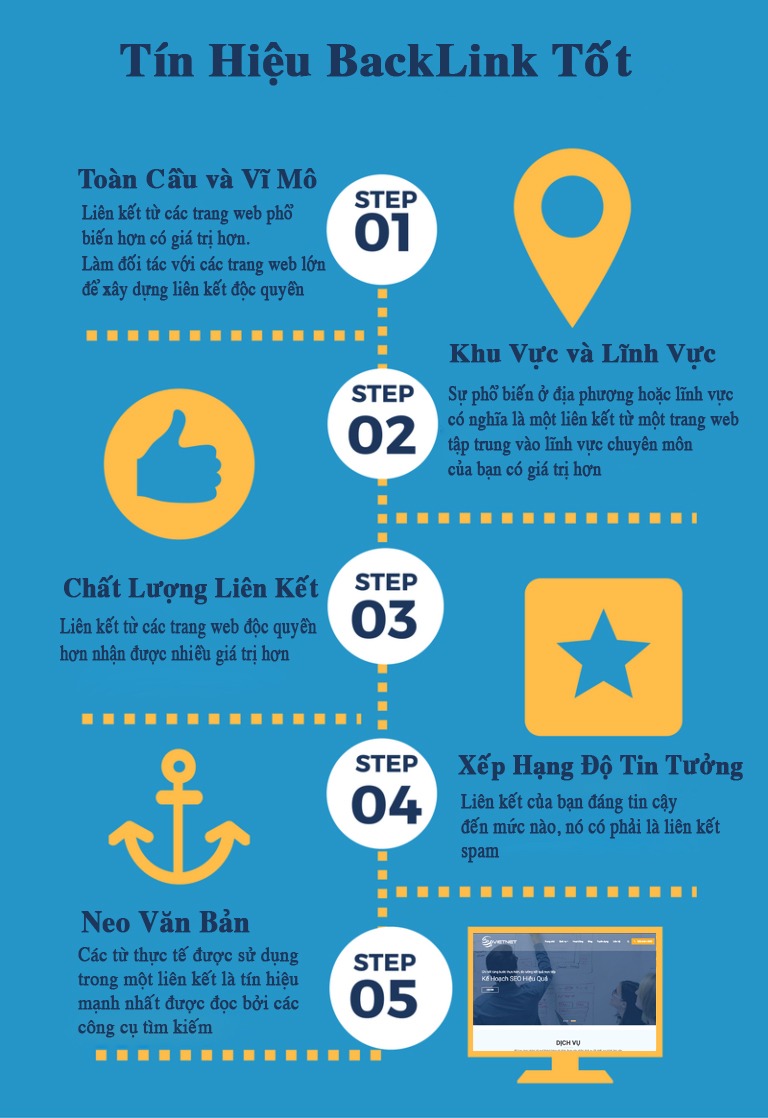
Tools to Check SEO Off Page
- Ahrefs: A powerful tool for link analysis and backlink checks. It provides detailed information about links to your website, helping you optimize your SEO Off Page strategy.
- Moz: Provides tools like Moz Link Explorer to check and analyze backlinks. Moz also offers metrics like Domain Authority (DA) to evaluate site authority.
- SEMrush: Offers tools for backlink analysis, keyword performance tracking, and traffic checks. This is a comprehensive tool for SEO Off Page optimization.
- Majestic SEO: Provides metrics like Trust Flow and Citation Flow to evaluate the quality and quantity of links to your site. This tool helps you better understand your link profile.
- Google Search Console: Provides reports on search performance and links to your site. This is a free and useful tool for monitoring and optimizing SEO Off Page.
Why are SEO On Page and Off Page so important?
SEO On Page and Off Page are two important factors that help improve the ranking of a website on search engines. They help increase user reach, traffic, and conversion rates. Each method has its own role but complements each other, optimizing the overall effectiveness of the website:
Increase website credibility by optimizing SEO On Page and Off Page
SEO Off Page, especially through building quality links (backlinks), helps increase the website’s credibility in the eyes of search engines. When your site receives links from reputable sites, it is considered trustworthy and valuable.
Increase traffic by optimizing SEO On Page and Off Page
SEO Off Page strategies like social media marketing and content marketing help increase the online presence of the website. This leads to attracting more visitors, not only from search engines but also from other sources like social media and blogs.
Improve search rankings by optimizing SEO On Page and Off Page
A website with many quality links from reputable sites will rank higher in search results. This helps your website appear in top positions, attracting attention and increasing click-through rates from users.
Increase conversion rates by optimizing SEO On Page and Off Page
When your website is credible and ranks high, users will trust it more when visiting and using services or purchasing. This helps increase the conversion rate from visitors to customers.
Build brand through optimizing SEO On Page and Off Page
SEO Off Page helps build and strengthen your brand on the internet. A strong brand not only enhances recognition but also creates trust and loyalty from customers.
Combining SEO On Page and Off Page helps to comprehensively optimize the website, ensuring that both the content and credibility of the site are improved, thereby enhancing business efficiency and sustainable development on the internet.
What are the characteristics distinguishing SEO On Page and Off Page?
| Criteria | SEO On Page | SEO Off Page |
|---|---|---|
| Definition | Optimizing content and technical elements on the website. | Optimizing external elements of the website. |
| Main Factors | Title, meta tags, content, URL, images, page speed, internal links. | Backlinks, social media marketing, content marketing, online PR. |
| Control | Fully controlled by the website owner. | Dependent on external factors, hard to fully control. |
| Direct Impact | Improves user experience and search engine friendliness. | Increases website credibility, authority, and reliability. |
| Goal | Make the website easy to understand and use by users and search engines. | Enhance online presence and credibility of the website. |
| Strategy Examples | – Optimize keywords in content. <br> – Fix technical errors (404, 301 redirects). <br> – Improve page speed. | – Build quality links. <br> – Share content on social media. <br> – Participate in relevant forums and blogs. |
| Popular Tools | Google Search Console, Yoast SEO, Google PageSpeed Insights. | Ahrefs, Moz, SEMrush, Majestic SEO. |
Through the article above, it can be seen that SEO On Page and Off Page are inseparable elements in the search engine optimization strategy. SEO On Page focuses on improving internal elements of the website such as title, meta tags, content, and URL structure, enhancing user experience and search engine friendliness. On the other hand, SEO Off Page focuses on building links and reputation outside the website through activities like social media marketing, content marketing, and participating in online communities.
Both SEO On Page and Off Page play a crucial role in enhancing the visibility and credibility of the website, thereby improving search rankings, increasing traffic, and conversion rates. Effectively combining SEO On Page and Off Page will help you comprehensively optimize the website, ensuring business efficiency and sustainable development on the internet.
Use SEO support tools smartly to detect and promptly fix issues, thereby achieving optimal results in your SEO strategy.


